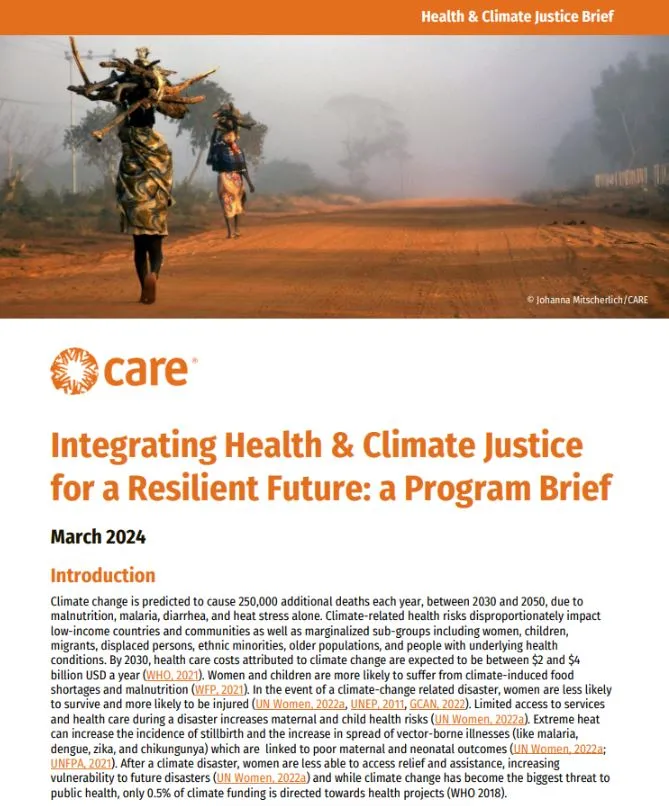
Climate change is projected to lead to 250,000 more deaths annually from 2030 to 2050 due to malnutrition, malaria, diarrhea, and heat stress. Low-income countries and marginalized groups like women, children, migrants, ethnic minorities, older people, and those with health issues are most vulnerable to these climate-related health risks.
The Rupantaran project builds on a decade of work with landless and smallholder farmers in rural Nepal to increase resilience and improve their livelihoods. Village Savings and Loan Associations (VSLAs) were added to the Farmer Field and Business School (FFBS) model as a key way to challenge social norms around women’s participation and decision making, explore opportunities and promote economic empowerment. Read More
The Her Money, Her Life project in Tanzania is maximizing the potential benefits women receive from their crops through a focus on entrepreneurship and collective investment. This brief outlines how the project uses VSLAs as a platform to address root causes of gender inequality. Read More
Menstrual Health and Hygiene is relevant to all of us. The theme of this year's Menstrual Hygiene Day is a #PeriodFriendlyWorld. CARE's work with schools, communities and displaced persons supports menstrual materials, infrastructure and education that break down taboos and increase access to menstrual hygiene for all. Below is a small collection of some of CARE's recent work in menstruation. Read More